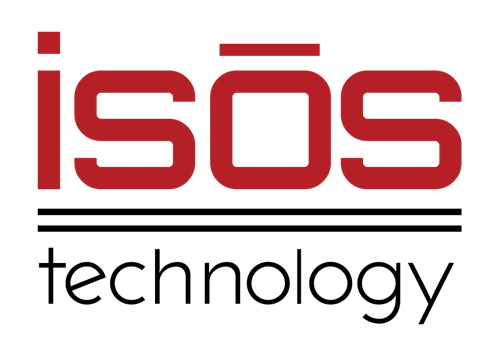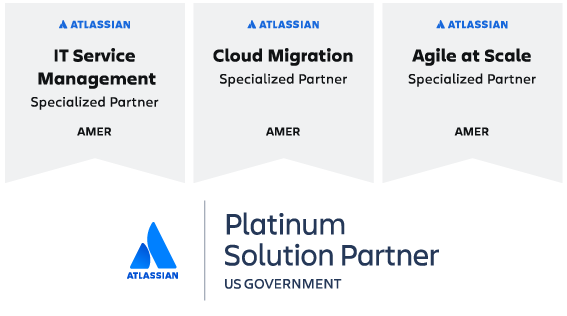 When it comes to project management software, Jira has long been a leading choice for organizations looking to streamline their workflows, enhance collaboration, and boost project planning. However, before migrating to the cloud, there are many scenarios where teams may seek alternatives to Jira On-Premise, especially for on-premise deployment.
When it comes to project management software, Jira has long been a leading choice for organizations looking to streamline their workflows, enhance collaboration, and boost project planning. However, before migrating to the cloud, there are many scenarios where teams may seek alternatives to Jira On-Premise, especially for on-premise deployment.
Despite the advantages that Jira users have come to appreciate, including everything from its flexible pricing plans to retrofitted AI features, some preferences, and bandwidths might tempt customers to try alternatives instead of the obvious choice for your employees and software development team.
As Jira’s On-Premise, also known as Jira Server, software services ended in February of last year, it's good to know the best course for data migration instead of using the Jira software on your servers or Jira Cloud.
Various options are available, whether due to budget constraints for additional costs, specific feature needs, or a preference for different interfaces and server applications. Below are some of the best alternatives to Jira for on-premise tools.
Jira on-premise deployment: Why consider alternatives?
Though lovers of old-school Jira On-Premise may have some growing pains to move through, this is not to say you and your team won’t have options. The end of sale and support for Jira on-premises makes these options non-viable. It creates potential cost implications for existing and new users and a bit of a vacuum for the need for continued project management solutions.
Top alternatives to Jira on-premise
While Jira software is proprietary, commercial software and part of Atlassian’s outstanding support of the open-source software community, that doesn’t mean there aren’t alternatives to the data center you use. Here are some top options to consider.
1. Orangescrum on-premises
Orangescrum is a versatile project management tool that offers both cloud and on-premise deployment options and grants you full control over data. It’s ideal for teams looking for an all-in-one solution to manage tasks, timelines, and resources, with the added bonus of 24/7 support.
Orangescrum offers hassle-free project management options, including a visual interface, the ability to track time, and integration with popular tools like GitHub, Slack, and Google Drive. Here are some pros and cons.
Pros
- User-friendly and straightforward
- Complete project management features, including time tracking and resource management
- Offers Gantt charts, task dependencies, and team collaboration features
- Fully customizable for different workflows
Cons
- It is not as feature-rich as Jira issues in terms of advanced development workflows
- Limited integration options compared to Jira
2. DevRev
DevRev is a newer platform that focuses on delivering value for both product and support teams, starting at a great price point. It combines traditional project management features with customer support tools, making it an excellent alternative for teams needing project tracking and customer feedback management.
DevRev’s on-premise deployment option allows teams to keep sensitive data within their infrastructure. It starts at $9.99 per user per month. Here are a few benefits and drawbacks.
Pros
- Seamless integration between development and customer support
- Real-time collaboration for project updates and feedback
- Powerful AI-driven insights and automation
- Customizable workflows and dashboards
Cons
- Less well-established compared to Jira
- Requires some configuration for on-premise deployment
3. Basecamp
Basecamp is a simple and effective project management tool designed for small—to medium-sized teams. It emphasizes ease of use, offering a central hub for to-dos, file sharing, messaging, and scheduling while protecting data.
Basecamp can be self-hosted using a solution called Basecamp Personal, offering a private, on-premise alternative for organizations that prefer not to rely on cloud services. Its pricing starts at $299 a month, and here are a few more factors to consider.
Pros
- Minimalistic and easy to use
- All-in-one solution for team collaboration
- Comprehensive project communication features, including message boards and group chat
Cons
- Lacks advanced features such as detailed reporting and time tracking
- It may not be suitable for large, complex projects
4. Asana
Asana is one of the most widely used project management tools and offers a strong on-premise deployment option for enterprise-level teams with strong data security. It’s mainly known for its flexibility, allowing teams to manage work with tasks, projects, timelines, and dashboards.
Asana is ideal for teams seeking a straightforward, adaptable solution with robust project tracking and reporting features. The platform’s price point starts at $10.99 per user per month, and it has several pros and a few cons to factor into your decision regarding alternatives to Jira On-Premise deployment.
Pros
- Great for managing both simple and complex projects
- Highly customizable with task dependencies, tags, and priorities
- Well-supported enterprise-level deployment options
Cons
- On-premise deployment is typically available for larger enterprises, limiting access for smaller teams
- It can be overwhelming with its feature set for new users
5. Trello
Though Trello is primarily known as a cloud-based tool, organizations can utilize the power of its boards and cards by setting it up on a self-hosted instance or hosting it on their servers using third-party self-hosting solutions. It specializes in simplicity with its visual approach to project management.
It’s a kanban-style board that allows teams to organize tasks with drag-and-drop ease. This gives you complete control over your data and infrastructure, making it an excellent option for organizations that prefer an on-premise deployment. Here are some pros and cons for Trello, which starts at around $5 per user per month.
Pros
- Highly intuitive and user-friendly intuitive drag-and-drop interface
- Customizable boards and workflows with card-based task management
- Easy to set up and manage
- Extensive integrations with other tools
Cons
- Limited capabilities and functionality for larger, more complex projects
- Requires additional tools for advanced reporting and time tracking for feature parity with Jira
6. Notion
- Pricing: Starts from $10/seat/month
- G2 rating: 4.7/5
Like Jira, Notion has become a favorite for knowledge management, documentation, and team collaboration. While its on-premise deployment is not as straightforward as other tools, there are ways to self-host Notion on your infrastructure with third-party solutions.
Notion allows users to create customized workflows and project management templates, integrating seamlessly with other tools.
Pros
- Extremely flexible and customizable
- Ideal for teams needing a blend of project management and documentation
- Rich feature set including databases, wikis, and kanban boards
- Great for knowledge management
Cons
- It is not as built for complex tasks and project management as Jira
- Requires additional effort for self-hosting
7. Linear
Linear is a sleek, fast, intuitive project management tool designed primarily for software development teams. It offers a simple yet powerful workflow that helps teams track bugs, plan sprints, and prioritize tasks efficiently.
Though Linear’s cloud version is more popular, you can self-host Linear using third-party options to keep your data private. The pricing starts at around $8 per user per month, so weigh the following pros and cons.
Pros
- Extremely fast and efficient with minimal overhead
- Ideal for software development teams
- Focuses on sprint planning and issue tracking
- Clean, user-friendly interface
Cons
- Limited in terms of non-development project management features
- It is still maturing in terms of integrations and advanced features compared to Jira
Migrating to Jira Cloud: A viable alternative
Before stressing about alternatives to Jira On-Premise deployment, remember that migrating to Jira Cloud is seamless, and using ISOS Tech is the best option. You’ll enjoy improved security, reliability, and administration features with Jira Cloud.
Jira Cloud is a work management platform designed to help teams plan, track, and manage their work. It offers features for issue tracking, project management, and agile processes, all hosted and maintained by Atlassian. The cloud lets you access your data anywhere, which is convenient, cost-effective, and ideal for remote work. Moving to Cloud on Jira Software, Confluence, or our other products is a viable alternative to Jira On-Premise.
Benefits of Jira Cloud
Jira Cloud offers enhanced scalability and flexibility when it comes to pricing and growing your business's scope. It reduces upfront costs and provides a user-friendly experience with automatic updates. This means you never have to worry about updates. These are automatic with this software and include security patches, which once again frees up your team from maintenance and other hassles hindering their ability to remain task-oriented.
Migration process
After all this planning and assessment, if you are considering migrating to Jira Cloud, remember that, unlike self-managed products, Jira’s Cloud products are hosted, set up, secured, maintained, and updated by Atlassian. This frees your team from having to worry about those particular administrative burdens.
Jira can help your business choose the correct cloud migration method and migrate data with minimal downtime, which is essential to consider when figuring out your roadmap creation and migration execution. It is also entirely secure and can help you optimize and support by performing a thorough technical assessment of your existing tools and target instances to mitigate roadblocks and risks during migration.
Why Isos Technology for Jira Cloud migration is a great choice
Isos Technology processes, proven methodology, and experience make it a great choice for Jira Cloud migration because it offers Cloud expertise in strategy, guidance, support, and resources. This greatly helps your company maximize its original Atlassian investment, improve efficiency, and handle day-to-day Jira administration and project management.
Simply put, Isos Technology has the knowledge and experience to guide you through the complexities of a secure migration and cloud strategy while improving efficiency and reduced-cost scalability. This is crucial for organizations transitioning to the cloud as it can help fill critical resource needs, including handling day-to-day Jira administration tasks and strategic initiatives.
Atlassian Platinum Solution Partner with Cloud Specialization offers expertise in data compliance and best practices to better set up for continued success in Cloud post-migration through flexible architecture support, compliance, and governance expertise.
Jira Cloud vs. other Jira alternative migration options
Choosing the right project management tool depends on your organization's specific needs, the size of your team, and your project requirements. While Jira remains popular, these alternatives offer robust functionalities for on-premise deployment. From lightweight tools like Trello and Basecamp to more specialized options such as Orangescrum and Linear, these alternatives provide a range of features suited for teams of all sizes and industries.
Jira has long been a popular project management tool for software development teams. Its flexibility, customization, and robust features make it ideal for Agile methodologies and tracking complex workflows. While it remains a go-to solution for many teams, there are a variety of powerful on-premise alternatives that can cater to different project management needs.
Before you choose your best alternative for Jira On-Premise deployment, assess your and your team's needs and explore Jira Cloud with Isos Technology for a strong and seamless migration.
Sign up to receive more great content
Learn more about Atlassian and how Isos can help by signing up to receive our latest blogs, eBooks, whitepapers and more.














